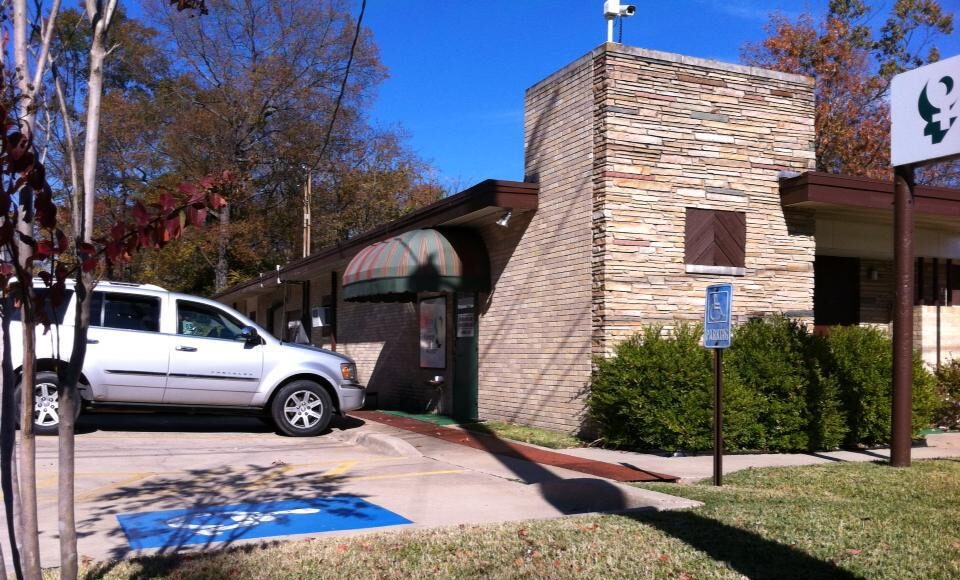Whether you prefer to think of abortion as the final fail-safe for a young woman in trouble or the fast track to hell for murdering babies – access to legal abortions in areas of Louisiana could become a relic-concept.
“Tell Senators: stop back alley abortions and vote NO on HB388,” said the subject line of an email from ChoiceLouisiana.com on April 11. “HB 388 is a dangerous bill that will force women to seek out back alley abortions. Instead of promoting safe, regulated clinics, it simply closes their doors, leaving women with nothing but desperate options.”
While the bill does not say to close abortion clinics, it has been modeled after laws in other states where the doors to clinics have been closing.
“It doesn’t have to be about choice, but about whether you respect women to make their own decisions or don’t you? This is about treating women like they are competent to make their own decisions,” said Katie Caldwell of Monroe, spokeswoman for Choice Louisiana. “Where are our allies?”
It’s a valid question since the bill passed the house March 31 with 85 yeas, six nays, and 15 absent.
Rep. Katrina Jackson, D-Monroe, authored the bill and repeated the word “pro-life” several times during the interview and touted HB 388 as a bill that’s “pro woman’s health.” The drone of a many background conversations played around her as she called Heliopolis back from her cell phone, speaking from the floor of the state house in Baton Rouge.
Called “The Unsafe Abortion Protection Act” as written into Section 2, it was designed to impose new regulations on physicians and outpatient clinics providing abortions.
“Shreveport already has a clinic with a physician who has admitting privileges,” said Jackson, referring to Hope Medical Group for Women. “I don’t think it’s an extraordinary request to ask other physicians and clinics to have admitting privileges.”
According to HB 388, “[Physicians shall] have active admitting privileges at a hospital that is located not further than 30 miles from the location at which the abortion is performed or induced and that provides obstetrical or gynecological health care services.”
Jackson noted that all “clinics are currently operating within the 30-mile radius of two or three hospitals” and in compliance with the bill.
“HB 388 will clarify that informed consent protections apply to both surgical abortion, as well as to RU-486 chemical abortion,” according to a prolifelouisiana.org summary.
The website further compares the bill’s language to the 2013 Texas law, which was recently reinstated by the U.S. Fifth Circuit Court of Appeals.
Consent protections currently include providing the pregnant woman with a state department of health information on development of the unborn, medical risks, abortion alternatives, optional ultrasounds, and a 24-hour reflective period.
“Abortion is a surgical procedure when you look at women’s health,” said Jackson. “The physicians who are doing the procedures have no contact with physicians who will be treating them at the hospitals. Also, I’m pro-life.”
“My constituents are supporters of my position of pro-life and women’s health. The issue is women’s health, and they were aware I was pro-life when elected, also pro-women’s health,” she said.
Meanwhile, Choice Louisiana has been working with Planned Parenthood – mostly in southern parts of the state – to get the word out to sympathetic women.
“This bill is well on it’s way to becoming a law. It will almost certainly be struck down by the courts eventually, leaving Louisiana with nothing more than hurt women and big legal bills. Tell your senator to stop illegal abortions and stop wasting State money by voting NO on HB388,” implored the Choice Louisiana email.
Texas women thought the same thing about a harsher version of the same law being struck down, only to see it upheld again in appeals last month. Now, predictions are for the issue to be heard by the Supreme Court of The United States as the Associated Press has reported the expressed interest of the four liberal justices.
Caldwell expressed dismay at how “women are under-represented” in the statehouse.
“Women in the house and senate are not friendly to women,” she said. “They refused medicaid funding and reduced food stamps. [Jackson] is pro-medical expense, but she’s reducing reproductive services. It’s a little schizoid.”
It was rather confusing to discover a Democratic woman authoring and sponsoring such legislation, as elected women and Democrats are more well-known for protecting a woman’s right to choose.
“[Jackson] is incredibly religious and says her constituents want this. But I’m from Monroe, and people don’t want this,” said Caldwell. “[Jackson] wrote it, but it’s beyond her now. I would love to see her publicly suffer for what she’s done.”
Caldwell asked that interested women write letters and emails, to call their senators and be heard. Action events were scheduled for Centenary College on April 15 (Heliopolis deadline), with other dates being developed by Planned Parenthood.
“Logically, this should not be happening at all, it’s insane. People need to get out and get involved,” said Caldwell, who can be reached through email to katie.caldwell@choicelouisiana.com by anyone interested in co-hosting structured events in the Shreveport area.
“Where does it end? This is a slippery slope, and the legislature is involving themselves where they have no business,” said Caldwell. “If they succeed, it will only get worse. People feel safe, but they don’t have to repeal Roe for women to lose rights.”
Talking Points from Choice Louisiana:
• Poor women disproportionately affected.
• Will cause safe, reputable providers to close.
• Abortion providers already required to have transfer agreement with admitting physicians.
• Abortions are safe. Less than .5 percent lead to major complications.
• Politicians, not doctors, are pushing changes, though ACOG and AMA have spoken against.
• Admitting privileges are difficult to gain and leave the decision of abortion availability up to hospitals.
• Unfairly targets abortion doctors since other outpatient physicians (such as full mouth dental implants by dentists, dermatologists ) using similar levels of anesthesia are not required to have admitting privileges.
• Requiring a nearby hospitals’ phone number be provided is redundant, cause everyone knows to call 9-1-1 in an emergency.

